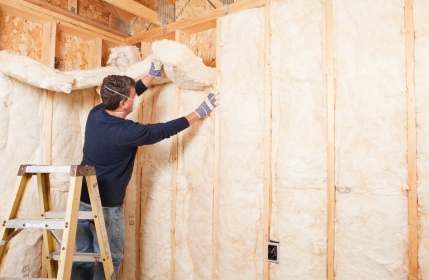Massachusetts Governor Charlie Baker wants homeowners to provide an energy scorecard and rating to potential homebuyers. The Massachusetts Association of Realtors (MAR) does not like the proposed legislation. Whether homebuyers care one way or the other remains uncertain.
 Governor Baker filed legislation on April 3, 2018, that he believes will provide homeowners and prospective homebuyers with access to information about the anticipated energy efficiency characteristics of residences and any recommended cost-effective energy efficiency improvements. An Act Relative to Consumer Access to Residential Energy Information would require free residential energy efficiency assessments, such as assessments done by Mass Save, to include a home energy scorecard and energy rating. After January 1, 2021, the proposed bill would require homeowners to give home energy performance ratings to potential Massachusetts homebuyers for publicly listed one- to four-family homes for sale.
Governor Baker filed legislation on April 3, 2018, that he believes will provide homeowners and prospective homebuyers with access to information about the anticipated energy efficiency characteristics of residences and any recommended cost-effective energy efficiency improvements. An Act Relative to Consumer Access to Residential Energy Information would require free residential energy efficiency assessments, such as assessments done by Mass Save, to include a home energy scorecard and energy rating. After January 1, 2021, the proposed bill would require homeowners to give home energy performance ratings to potential Massachusetts homebuyers for publicly listed one- to four-family homes for sale.
The American Council for an
“Massachusetts is a national leader in energy efficiency, and this first-of-its-kind legislation would provide energy performance data to homeowners and buyers to improve consumer information and promote home energy efficiency,” Governor Baker said. “These improvements will result in the reduction of hundreds of thousands of tons of greenhouse gas emissions and hundreds of millions of dollars in annual savings for Massachusetts ratepayers.”
The MAR does not believe the bill will meet its intended goal of improving energy efficiency, and the real estate industry trade group thinks the bill will cause harm to moderate- and low-income homeowners.
“Realtors® are for energy efficiency, but the mandatory nature of this bill won’t do what its supporters hope it will,” 2018 MAR President Rita Coffey said. “The key to increasing energy efficiency in Massachusetts is through incentives and not mandates. Programs like Mass Save that provide incentives [are] the right way to go.”
While homebuyers likely would appreciate the energy scorecard and rating at the time of purchase, especially as a potential negotiating tool, their feelings might change when it is their turn to sell the home. Homeowners want to save energy; however, energy efficiency upgrades might have to take a back seat to an electrical upgrade, a new roof, or some other home improvement projects. The impact the home scorecard and rating would have on a home's sale price could depend on the real estate market at the time of sale.
The MAR believes homebuyers can obtain information about a home's energy efficiency on their own and use such information as they see fit. MAR thinks the mandatory nature of the bill would unfairly penalize moderate-income homeowners who cannot afford to make upgrades to improve their home’s score.
“This energy efficiency score would really stick it to moderate-income homeowners with older homes who can’t afford upgrades,” said Coffey. “Not every 53-year-old home is the same and to put an energy efficiency rating on them won’t improve energy efficiency.”
Upon passage of the legislation, the Massachusetts Department of Energy Resources (DOER) would design the energy scorecard and develop certification standards and training for scorecard providers. DOER would also provide training for residential real estate professionals on best practices for explaining scorecards to prospective homebuyers.






